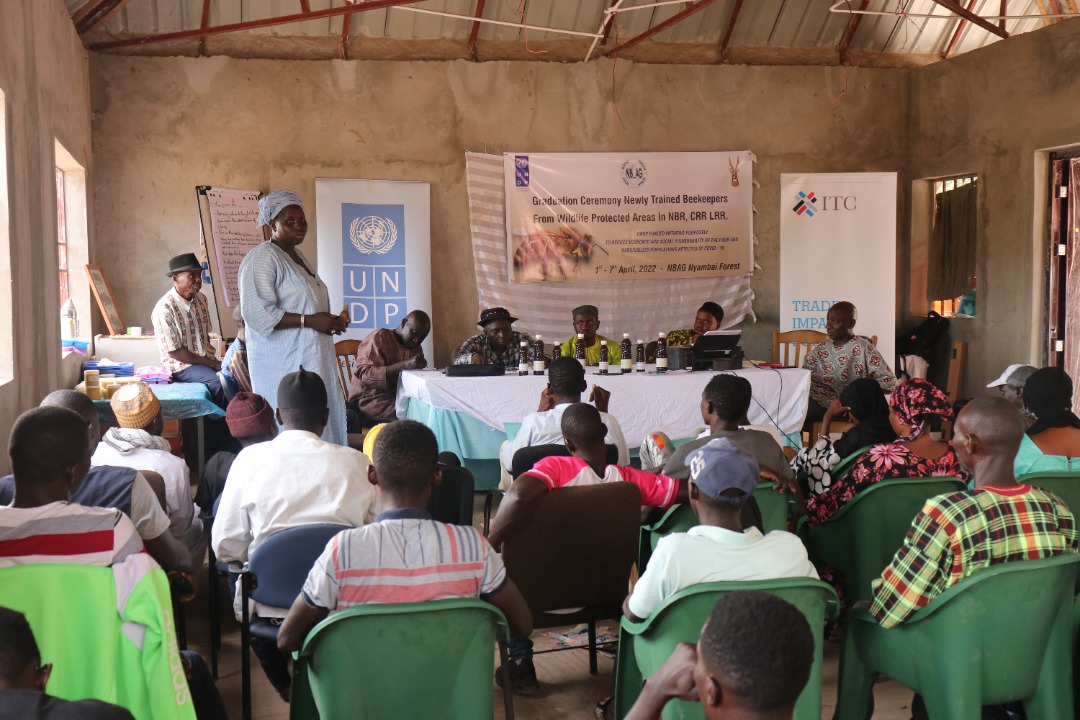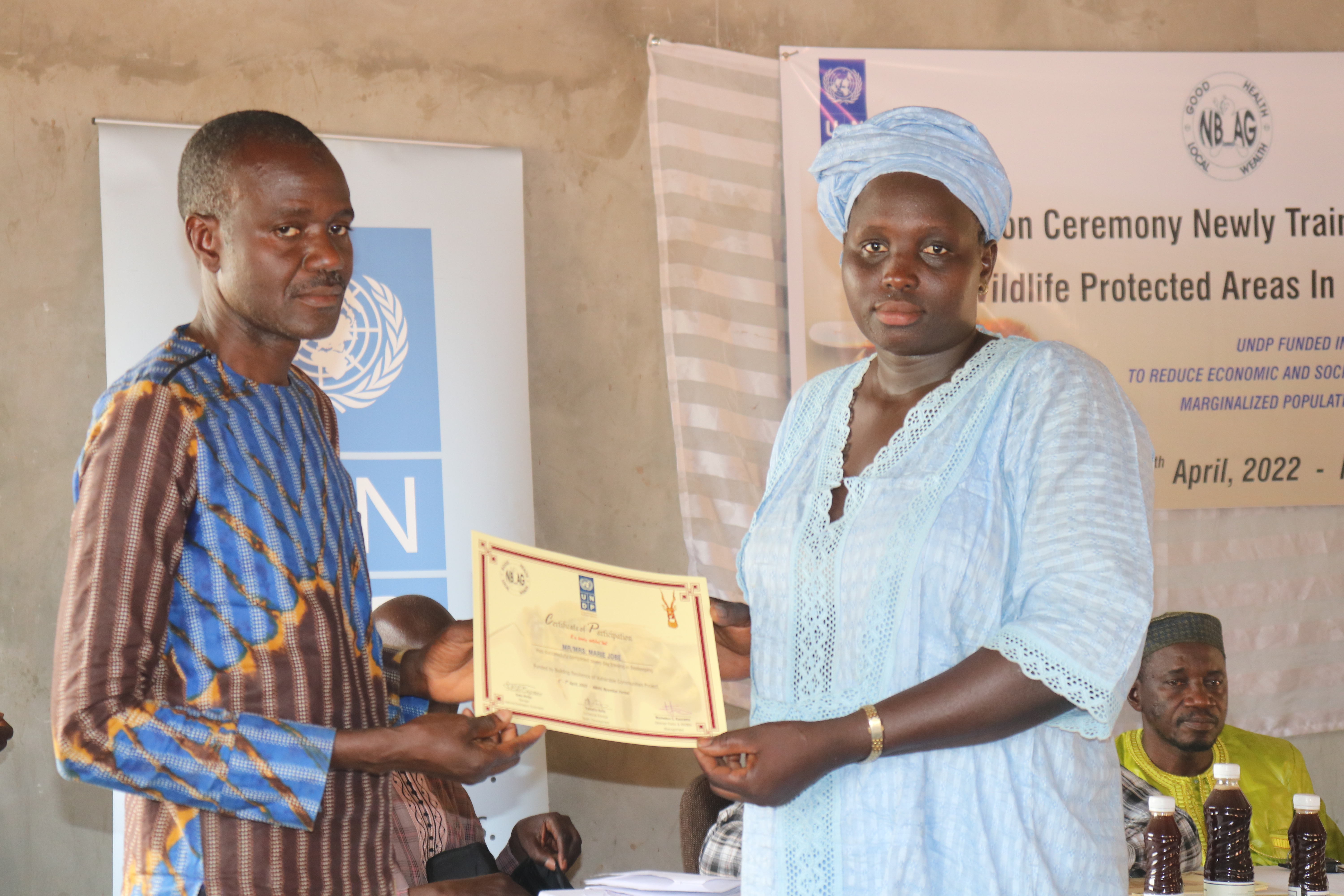Since 2019, the impact of the COVID 19 pandemic continues to manifest in the daily lives of the ordinary people, especially those in the poor and rural communities around the world. In the Gambia, the situation is no different. Jobs have been laid off, the cost of living soared and incomes continue to plummet.
With no near end to this global phenomenon in sight, different coping mechanisms and sustainable strategies are being crafted to adapt as well as mitigate its impact.
The International Trade Center (ITC) in partnership with the United Nations Development Program (UNDP) recently concluded a 4-week intensive skills training for 30 youth and women in beekeeping. This initiative is to purposely reduce the economic and social vulnerability of the poor and marginalized populations affected by COVID 19.

The 30 newly trained beneficiaries who include up to 13 women, were drawn from wildlife protected areas in the regions of North Bank Region, Central River Region and Lower River Region.
Speaking at the graduation ceremony, an excited trainee Mrs. Marie Jobe was quick to show appreciation for such an opportunity. In her words, “before this training, we would normally just extract the honey from the hives and that was it. But with this training, we have learnt to use the honeycombs as well, to make soap which helps in fighting skin infections. We therefore cannot emphasize enough the importance of this training to us especially the women in this batch.”
The Technical advisor and Coordinator of the Jobs, Skills and Finance Programme at the ITC highlighted the significance of the training, stating that “the world is faced with great threats from the impact of the pandemic, climate change to the war in Ukraine. But one very important mechanism for resilience and adaptive capacity comes in the different skills that different populations have in providing for themselves and their countries at large. This is why, such a training of beekeepers is very important in mitigating the impact of the global crises on us, not just as individuals but as a country.”
Yusupha went further to emphasize that all the newly trained beekeepers should take this venture very seriously as they have been trained on a very important life skill and all the benefits that come with it. He added “beekeeping is a very lucrative venture because honey is a premium product as it is high on demand on the global market, healthier than sugar and entirely organic.”
The president of the Beekeepers Association of The Gambia Mr. Musa Badjie shared “today, we aim to make a lot of Gambians beekeepers. We have all seen how poorly groundnut, our cash crop is doing on the global market. Therefore, we wish to change that narrative such that honey becomes our new ‘cash product’.”
Bees are very important to us as human beings and to our survival. They contribute to pollinating our plants as well as produce honey, which is a major source of income. But of recent, bees have faced a great threat and a drastic reduction in their numbers due to recurrent wildfires and deforestation.
It is therefore our responsibility to conserve and preserve our environments, our bushes. Since that is the habitat of these bees and where local hives are placed.
Based on the impressions from the trainees, understanding the beekeeping value chain and protecting it, is the only sustainable means of making meaningful impacts on their lives.

Enjoyed this post by Isatou? Share it with others.
View count: 1153Ramatoulie Mbye: Creating comfort out of a discomfort
“The YEP digitalisation has benefited my business in several ways, the greatest of which is that I now have an online store for my products. Customers can now easily see my inventory as well as the prices for each item which has greatly enhanced my customers' shopping experience. We can...
Posted 4 years ago